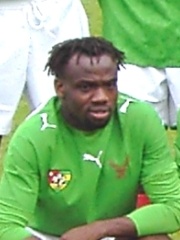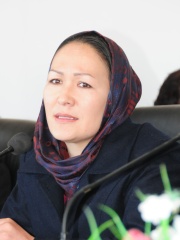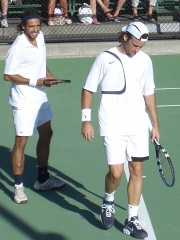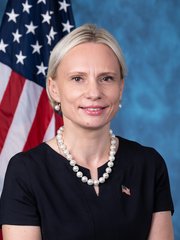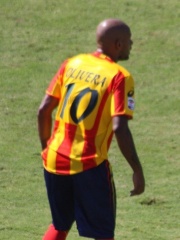Soccer Player
Mario Regueiro
1978 - today
EN.WIKIPEDIA PAGE VIEWS (PV)

 Mario Regueiro
Mario Regueiro
Mario Ignacio Regueiro Pintos (born 14 September 1978) is a Uruguayan retired footballer who played mainly as a left winger but also on the other flank, and even as a forward. During his professional career he played mainly in Spain, amassing La Liga totals of 167 matches and 25 goals over the course of eight seasons. Other than in his country, he also competed in Greece and Argentina. Regueiro represented Uruguay at the 2002 World Cup. Read more on Wikipedia
His biography is available in 25 different languages on Wikipedia (up from 24 in 2024). Mario Regueiro is the 9,984th most popular soccer player (down from 9,127th in 2024), the 349th most popular biography from Uruguay (down from 345th in 2019) and the 221st most popular Uruguayan Soccer Player.
Memorability Metrics
Page views of Mario Regueiro by language
Among Soccer Players
Among soccer players, Mario Regueiro ranks 9,984 out of 21,273. Before him are Massimo Maccarone, Keisuke Tsuboi, Michalis Sifakis, José Ortigoza, Patrick Cutrone, and Gadi Kinda. After him are Adékambi Olufadé, Igor Paixão, Paulo Sérgio, Florin Cernat, Dirk Lehmann, and Pavel Kadeřábek.
Most Popular Soccer Players in Wikipedia
Go to all RankingsMassimo Maccarone
1979 - Present
HPI: 45.05
Rank: 9,984
Keisuke Tsuboi
1979 - Present
HPI: 45.05
Rank: 9,985
Michalis Sifakis
1984 - Present
HPI: 45.05
Rank: 9,986
José Ortigoza
1987 - Present
HPI: 45.05
Rank: 9,987
Patrick Cutrone
1998 - Present
HPI: 45.05
Rank: 9,988
Gadi Kinda
1994 - 2025
HPI: 45.05
Rank: 9,989
Mario Regueiro
1978 - Present
HPI: 45.04
Rank: 9,990
Adékambi Olufadé
1980 - Present
HPI: 45.04
Rank: 9,991
Igor Paixão
2000 - Present
HPI: 45.04
Rank: 9,992
Paulo Sérgio
1968 - Present
HPI: 45.04
Rank: 9,993
Florin Cernat
1980 - Present
HPI: 45.04
Rank: 9,994
Dirk Lehmann
1971 - Present
HPI: 45.04
Rank: 9,995
Pavel Kadeřábek
1992 - Present
HPI: 45.04
Rank: 9,996
Contemporaries
Among people born in 1978, Mario Regueiro ranks 642. Before him are Ricardo Rocha, Mikko Leppilampi, Helena Josefsson, Vincent Macaigne, Nicolas Mathieu, and Azra Jafari. After him are Ebru Özkan, Mariano Zabaleta, Kelly Stables, Qin Dongya, Victoria Spartz, and Antonio de Nigris.
Others Born in 1978
Go to all RankingsRicardo Rocha
SOCCER PLAYER
1978 - Present
HPI: 45.11
Rank: 636
Mikko Leppilampi
ACTOR
1978 - Present
HPI: 45.11
Rank: 637
Helena Josefsson
MUSICIAN
1978 - Present
HPI: 45.10
Rank: 638
Vincent Macaigne
ACTOR
1978 - Present
HPI: 45.10
Rank: 639
Nicolas Mathieu
WRITER
1978 - Present
HPI: 45.09
Rank: 640
Azra Jafari
POLITICIAN
1978 - Present
HPI: 45.05
Rank: 641
Mario Regueiro
SOCCER PLAYER
1978 - Present
HPI: 45.04
Rank: 642
Ebru Özkan
ACTOR
1978 - Present
HPI: 45.04
Rank: 643
Mariano Zabaleta
TENNIS PLAYER
1978 - Present
HPI: 45.04
Rank: 644
Kelly Stables
ACTOR
1978 - Present
HPI: 45.03
Rank: 645
Qin Dongya
ATHLETE
1978 - Present
HPI: 45.02
Rank: 646
Victoria Spartz
POLITICIAN
1978 - Present
HPI: 45.02
Rank: 647
Antonio de Nigris
SOCCER PLAYER
1978 - 2009
HPI: 45.01
Rank: 648
In Uruguay
Among people born in Uruguay, Mario Regueiro ranks 349 out of NaN. Before him are Rubén Olivera (1983), Claudia Amengual (1969), William Castro (1962), Alfonso Domínguez (1965), Federico Magallanes (1976), and Eduardo Acevedo (1959). After him are Joe Bizera (1980), José Pintos Saldanha (1964), Marcelo Otero (1971), Maxi Gómez (1996), Gustavo Varela (1978), and Gustavo Munúa (1978).
Others born in Uruguay
Go to all RankingsRubén Olivera
SOCCER PLAYER
1983 - Present
HPI: 45.45
Rank: 343
Claudia Amengual
WRITER
1969 - Present
HPI: 45.44
Rank: 344
William Castro
SOCCER PLAYER
1962 - Present
HPI: 45.34
Rank: 345
Alfonso Domínguez
SOCCER PLAYER
1965 - Present
HPI: 45.30
Rank: 346
Federico Magallanes
SOCCER PLAYER
1976 - Present
HPI: 45.22
Rank: 347
Eduardo Acevedo
SOCCER PLAYER
1959 - Present
HPI: 45.18
Rank: 348
Mario Regueiro
SOCCER PLAYER
1978 - Present
HPI: 45.04
Rank: 349
Joe Bizera
SOCCER PLAYER
1980 - Present
HPI: 44.94
Rank: 350
José Pintos Saldanha
SOCCER PLAYER
1964 - Present
HPI: 44.80
Rank: 351
Marcelo Otero
SOCCER PLAYER
1971 - Present
HPI: 44.72
Rank: 352
Maxi Gómez
SOCCER PLAYER
1996 - Present
HPI: 44.56
Rank: 353
Gustavo Varela
SOCCER PLAYER
1978 - Present
HPI: 44.50
Rank: 354
Gustavo Munúa
SOCCER PLAYER
1978 - Present
HPI: 44.48
Rank: 355
Among Soccer Players In Uruguay
Among soccer players born in Uruguay, Mario Regueiro ranks 221. Before him are Manuel Ugarte (2001), Rubén Olivera (1983), William Castro (1962), Alfonso Domínguez (1965), Federico Magallanes (1976), and Eduardo Acevedo (1959). After him are Joe Bizera (1980), José Pintos Saldanha (1964), Marcelo Otero (1971), Maxi Gómez (1996), Gustavo Varela (1978), and Gustavo Munúa (1978).
Manuel Ugarte
2001 - Present
HPI: 45.54
Rank: 215
Rubén Olivera
1983 - Present
HPI: 45.45
Rank: 216
William Castro
1962 - Present
HPI: 45.34
Rank: 217
Alfonso Domínguez
1965 - Present
HPI: 45.30
Rank: 218
Federico Magallanes
1976 - Present
HPI: 45.22
Rank: 219
Eduardo Acevedo
1959 - Present
HPI: 45.18
Rank: 220
Mario Regueiro
1978 - Present
HPI: 45.04
Rank: 221
Joe Bizera
1980 - Present
HPI: 44.94
Rank: 222
José Pintos Saldanha
1964 - Present
HPI: 44.80
Rank: 223
Marcelo Otero
1971 - Present
HPI: 44.72
Rank: 224
Maxi Gómez
1996 - Present
HPI: 44.56
Rank: 225
Gustavo Varela
1978 - Present
HPI: 44.50
Rank: 226
Gustavo Munúa
1978 - Present
HPI: 44.48
Rank: 227






